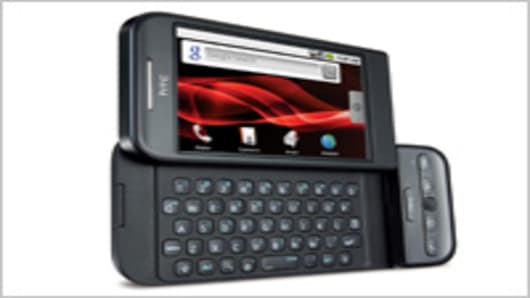If there's a single knock for just about anything mobile nowadays, it's battery life. Laptops, netbooks, smart phones, you name it. And the more these companies try to cram into these devices, the bigger the drain on the juice.
The issue took center stage at the big Google Zeitgeist event in London yesterday when Google co-founder Larry Page proclaimed that if your Android phone isn't giving you 24 hours of usage, there's something wrong.
But instead of taking ownership of the issue, and taking responsibility for a platform that doesn't adequately power-manage all the software his phones can run, Page committed the cardinal sin of blaming Google's third party applications developers instead.
It's their programs, and users running them all the time that suck up all that juice, not our phone.
Oy.
Talk about a strange perspective. Doing so a day ahead of the big Google I/O confab in San Francisco (which kicks off today), may not have been the wisest, politically savvy move. "Apps" is quite the hot-button issue in the mobile world right now, with Google frenemy Apple constantly crowing of its more than 200,000 apps that have been downloaded well over 1 billion times. Blaming developers for what might be a platform issue from Google itself is a curious message to send.
Battery management is a big, competitive issue, especially between Google and Apple and its iPhone.
Some background: When Steve Jobs unveiled the newest version of the iPhone operating system, the iPhone OS 4.0, he announced Apple's support for so-called "multi-tasking." It seems kind of techy, but the news essentially meant that iPhone users could open various programs simultaneously and toggle between them. It's something we all take for granted on a desktop, but that's because it's plugged into the wall, or even a laptop, but that's because the battery in that device is much bigger than those in their smart phone counterparts. Naturally, with Apple's support of multi-tasking, there were instant questions about how this would affect iPhone's battery life, and Jobs was quick to address it: "It's really easy to implement multitasking in a way that drains battery life. If you don't do it just right your phone's going to feel sluggish and your battery life is going to go way down. We've figured out how to implement multitasking of third-party apps and avoid those things," he said last month.
Hmmmm. And therein lies the difference between Google and Apple when it comes to innovation. Google: The Android battery life is sub-par and we blame you, the developers, our partners out there who are slaving away at trying to expand the platform. Apple: We've identified an issue in our platform and we have come up with an innovation to address it, so that we can help you the developers, our partners out there who are slaving away at trying to expand the platform.
Get the difference? "Exclusive" vs. "inclusive."
Page's ill-timed comments come amid some nice momentum, but deepending questions, about the Android operating system. Just today, Gartner reported that Google has now overtaken Microsoft for mobile operating systems and is now mounting a serious challenge to Apple. Gartner says Android is now the number 4 most popular mobile operating system on smartphones sold during the first quarter, on 10 percent of the devices sold in that period. Nokia's Symbian still commands the top spot, followed by Research in Motion and Apple. Gartner also pointed out that the Android platform is attracting more apps developers, and that could threaten Apple's dominance in the space. Still, it's important to remember that while Apple's App Store features those 200,000 apps, there's just 38,000 available for Android.
Yet, while Google has been enjoying apps momentum of late, the co-founder dissing such a key segment of the Android development community wasn't such a bright move. I gotta figure this will generate some buzz in San Francisco this week. Prepare for a "clarification" from Google in the not-too-distant future.
Questions? Comments? TechCheck@cnbc.com


